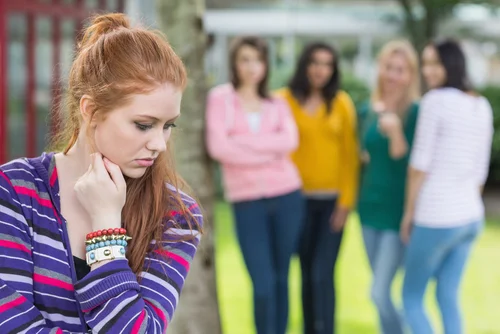Peer influence is when you do something you wouldn't normally do to feel liked and respected by friends. It's not necessarily about doing something against your will. You may hear ‘peer pressure’ often. Peer influence better describes how teens' desire to belong to a group of friends or peers shapes their behavior.
Some peer pressure and influence can be beneficial. Pre-teens and teens may be inspired to try new things, be more outspoken, or more interested in school. However, it may also be detrimental. Vaping and antisocial behavior may be tried by certain pre-teens and teens.
Being yourself: balancing peer pressure and influence
You may fear that your child is being affected by classmates or surrendering their principles to fit in with their buddies. You may fear that your youngster won't be able to say no if pressured to attempt unsafe activities like wagging school or smoking.
Your youngster may not conduct antisocial or unsafe behaviors just because they listen to and dress like pals.
If your child is confident in their choices and ideals, they are less susceptible to external influences. Your youngster may do some of their friends' things but not others. You have the greatest impact on your child's values and long-term decisions.
Your youngster is more likely to resist peer pressure and influence with your influence and self-confidence.
Read also: Solutions To Address Social Isolation In Elderly Populations
Peer pressure and influence management for pre-teens and teens
Effective peer influence coping involves striking a balance between individuality and group membership. Here are ways to aid your youngster.
Help your youngster gain confidence
Confidence can help children reject bad peer influence. Confidence helps your kid make safe, educated decisions and avoid unsuitable people and circumstances.
Encourage your youngster to try new activities that might work and keep trying even when it's challenging to boost their confidence.Giving your youngster praise for their efforts will boost their confidence. You may also model confidence for your child to help them feel confident.
Develop your child's self-compassion
Self-compassion is treating oneself with the same gentleness and understanding as you would someone you care about. Self-compassion can help your youngster manage peer pressure stress. A solid relationship with you fosters feelings of love, acceptance, and security for your child. Important for self-compassion.
Maintain communication.
Stay connected with your child to achieve this. This encourages your youngster to talk to you if they feel compelled to do something they don't like.
When you fear peer pressure and influence
Having your child's friends around and providing them space in your house can help you get to know them better. This lets you see if your youngster is affected by bad peer pressure and influence.
Good communication and a solid relationship with your child may encourage them to talk to you about peer pressure.
If you're concerned about your child's friends' harmful impact, talk to them without judgment and gently assist them understand their peers' effect. Criticism or disapproval of your child's pals may lead them to see them more or behind your back.
Talk to your youngster about undesirable behavior, not persons. You may add, ‘When you're among your buddies, you often get into fights’. This may be better than "You need new friends."
Read also: How To Deal With Negative Comments On Social
When should peer pressure and influence be considered
If your child's mood, behavior, eating, or sleeping routines alter due to friends, consider discussing it with them.
Some mood and behavior changes are natural among preteens and adolescents. If your kid has a persistent low mood lasting more than 2 weeks or it interferes with their daily activities, they may require mental health help.
Talk to your youngster if you're worried. Consult your GP, who can refer you to your local child and adolescent mental health team or another specialist.

